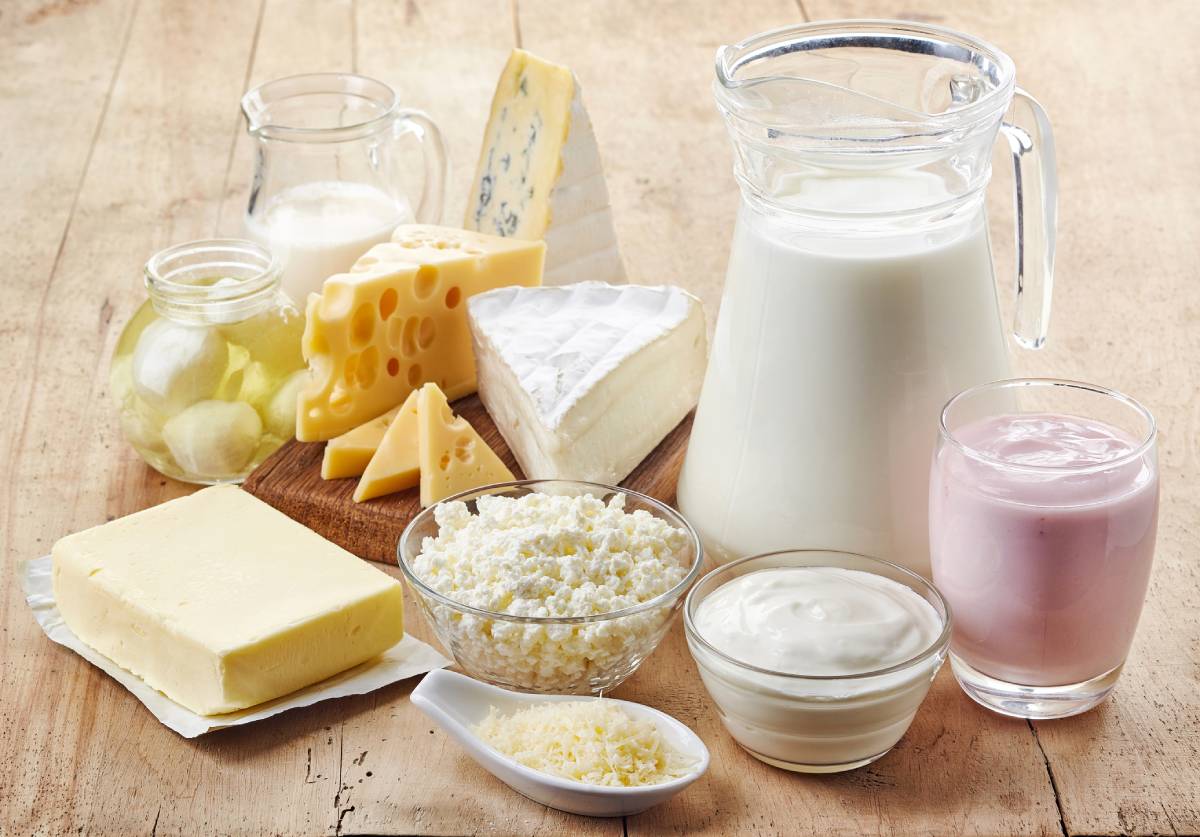Dental implants are a safe and effective tooth replacement option used by more than 3 million people in the United States. One reason for the popularity and high satisfaction rate of dental implants is that they look and function like natural teeth. That being said, when you first get a dental implant, you need to follow certain rules to ensure the successful intake of the implant. For instance, patients must avoid dairy after they first get their dental implants. If you have wondered, “Why can’t you eat dairy after getting dental implants?” continue reading for an explanation of this surprising rule and more information about how to manage your oral health after dental implant surgery.
Why Can’t You Eat Dairy After Getting Dental Implants?
The healing process after dental implant surgery takes time and patience. Over the course of the healing process, your jawbone grows around your implant to fully integrate it into your mouth. Most people are surprised to learn that dairy can interfere with this process. Still, despite what may seem like an odd requirement, it is very important to follow this advice. Right after your dental implant surgery, your gums and mouth are sensitive and more susceptible to dental implant failure. Some qualities of dairy make this failure even more likely. Below, we explain exactly why dairy is one of the most important foods to avoid during your healing period after dental implant surgery.
Negative Impacts of Dairy on Healing After Dental Implant Surgery
You will be pleased to know that avoiding dairy is not something you have to do forever. In fact, you only need to avoid it for a week or two after surgery. After that, you can slowly reintroduce it into your diet. In the time immediately following surgery, however, you must avoid it because dairy can have several negative impacts on the healing process.
Increased Risk of Infection
Because dental implant surgery involves implanting a titanium post into your jaw, it comes with the risk of infection. Infection of the dental implant is rare, but there are certain steps you need to take to avoid issues. One of these steps is avoiding dairy products. Dairy products have natural bacteria that are not normally harmful but pose a threat after dental surgery. Dairy encourages bacterial overgrowth, so at a time when you are particularly vulnerable to infection, it is important to avoid products like dairy, which can impact your surgery results and your overall health.
Increased Inflammation
Dairy products trigger inflammation in some people. Inflammation is natural and a part of the healing process. However, too much inflammation can impact your recovery. It can also cause pain and discomfort. Dairy can also produce mucus, which can irritate your throat. Avoiding dairy the first week after surgery can help you avoid unnecessary and detrimental inflammation.
Medication Interactions
Dairy can interact with certain medications. Your dentist will likely prescribe painkillers and antibiotics after implant surgery. This helps with pain management and can reduce your risk of infection. Consuming dairy with these types of medicine can interfere with your body’s absorption of them. It can also reduce the effectiveness of certain antibiotics.
Dairy Swaps During Your Recovery
Dairy is a large part of the American diet. Because of this, avoiding dairy can make it difficult to plan for your recovery period. However, there are several dairy alternatives that you can easily swap in after your dental implant surgery. There are several non-dairy milk options, including almond, soy, oat, coconut, cashew, and rice milk. Try a few out before your surgery to see which one you like best. You can also get dairy-free yogurt, cheese, and ice cream.
Dental Implant Surgery
If you are considering tooth replacement options, contact the team at Dental Care of Chino Hills today to schedule an appointment!

